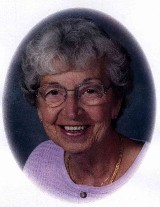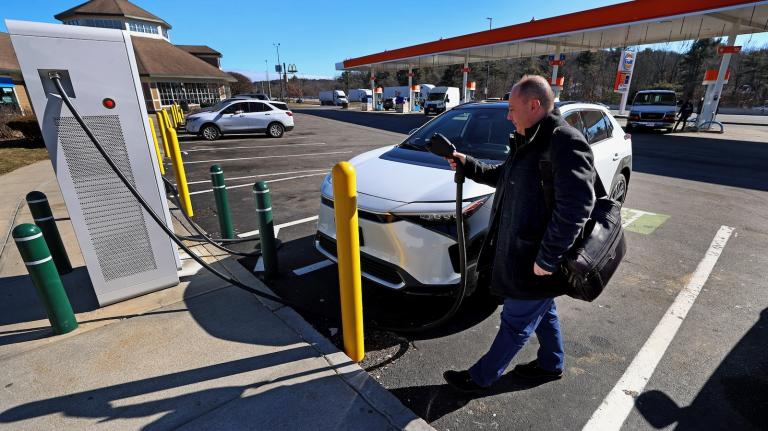 I was recently working in the front yard on one of those warm days that sporadically appear in March and April. Patricia came by, walking her bike up the hill and still wearing her bike helmet. She has watched my daughters grow up and always asks about them. Patricia is a thinking person and I always enjoy chatting with her. The topics included status seeking (my favorite), electric bikes, her present job, an article in The New York Times about global warming, and her ninety-something year-old multimillionaire mom.
I was recently working in the front yard on one of those warm days that sporadically appear in March and April. Patricia came by, walking her bike up the hill and still wearing her bike helmet. She has watched my daughters grow up and always asks about them. Patricia is a thinking person and I always enjoy chatting with her. The topics included status seeking (my favorite), electric bikes, her present job, an article in The New York Times about global warming, and her ninety-something year-old multimillionaire mom.
Patricia signed off when the neighborhood drunk bellied up. What village or town would be complete without one? Turns out he’s on the wagon and I wished him luck. My family has watched him stagger back and forth to the liquor store for almost two decades and he has taken way too much interest in my oldest daughter lately, who made the mistake of washing a car out front in a bikini last summer.
Frank from down the street wanted to know what had happened to the roosters. I told him that we had replaced them with hens, which are laying more eggs than we can eat. He volunteered that he loves fresh eggs and plans to save an egg carton for my daughter’s first delivery.
The young architect drove past with his kids, “Is it beer-thirty all ready?”
Paul came by in his truck. I put my beer down, leaned on my broom handle and steeled myself.
He leaned out his window and he said, “Why, may I ask, are you washing the street?”
“Because it’s dirty?” I suggested.
“Are you going to stop with this block or keep going?”
“Don’t know yet.”
“See ya,” he said, grinning.
“Later,” I said, grinning back.
I said hi to Chris from next door, who is the contractor go-to guy for the many properties owned by Suzy Burke, daughter of one of Seattle’s founding fathers and the namesake of Burke Avenue and the Burke Gillman bike trail. One of the first things Chris had done as our new neighbor was build a six-foot-high fence between us to mark his property line. I was OK with it. I had been mowing my old neighbor’s yard along with my own since the day I moved in. He could take over now. My daughters no longer wanted to run and play in the combined yards as they had done their entire lives anyway. The neighbors on the other side had built a similar six-foot fence years ago. Chris bought his house from Mary Breakfield, widow of Farmer Breakfield.
Half a century ago, Farmer had left the back-breaking farm life to drive a bus in the big city after he had literally broken his back lifting a pig. One evening, his wife had called for help from her porch as we sat on our deck eating dinner. Farmer had suffered a heart attack and my wife was unable to resuscitate him. As a young buck holding down a job, rebuilding a house from scratch, and raising a family, I always made time to listen to my old neighbors when they would see me working outside and come by to visit. That is how I learned their life stories. I just hope a young buck will show me the same dignity and listen to my stories when the time comes.
Loraine came by with her new dog, having finally recovered from the loss of Kimmy, her first dog. Loraine had raised two children as a single mother working as a drafter for the Army Corps of Engineers. She is now penniless and resides in low-income housing. She has the best sense of humor of any 80-year-old I know. She asked if my daughter had received her latest email and wonders if America will ever recover from the Bush legacy.
Victoria walked up with her two dogs. I caught up on some gossip, particularly the death of a neighbor from a few months ago. Apparently she had been taking a shower and “you know, being one of those save-the-Earth-by-taking-short-showers types,” her husband had grown concerned when she had been in the shower too long. He found her unconscious from a ruptured embolism. This brought up the topic of another neighbor’s funeral, which we had attended just last week.
Eva had been my backyard neighbor for twenty years. She was raised on a farm and loved the sound of our roosters crowing. She had asked from her deathbed why the roosters had been so quiet of late. My daughters had never missed a Halloween at her door. At the funeral, my wife and I had watched the DVD slideshow of Eva’s life set to the song “Happy trails to you.” I cringed because I already knew the story.
First there were the images of a young girl on a farm. Next, we see a young woman who has come to the big city to go to beauty school. Bill, her dashing young husband appears in his sailor uniform, followed by a picture of Eva, pregnant with her first of three children. From this point on the pictures include Eva, Bill, and their beautiful little boy. I knew that this child had been born with a fatal heart defect and was not going to live past his tenth birthday, as Bill and Eva also knew shortly after he had been born. The slide show continued and we watched as their two daughters came into being and grew older with each successive slide. I knew that at any frame now, the little boy would disappear from the presentation. When he did, there was not a sound to be heard save that of Will Rogers singing in the background. The next hurdle would be Bill’s exodus from the presentation. From that point on it was just Eva, her daughters and grandchildren.
The eulogy was given by one of her grieving grandsons. He told us between sobs of the time he and his grandma had met the drummer for Pearl Jam in a music store in Fremont. I had to laugh. That drummer gets around. I played basketball against him once. He told us of how happy Eva was to get home from the hospital, even though she knew she only had a few weeks to live. Her home meant everything to her, having raised a family there. She was also looking forward to seeing Bill and her baby boy again. Eva had been a lifelong member of the Fremont Baptist church.
After the service I spied one of my old neighbors, Rod, who has been house bound for a long time. I asked him how he was doing. He looked at me and said, “How come my mustache won’t get bushy like yours?” I told him I didn’t know but to keep trying and that I hoped to see him out and about this summer.
Bill, Eva’s husband, had died of lung cancer caused by the asbestos associated with his job in the shipyards. He had loaned me his dump truck and tools uncounted times. “Russ,” he would say to me, “three hundred years from now, nobody will know the difference.” He tried to get me to build things right. He knew from experience that you didn’t want things rotting away just when you get old and can’t rebuild them. This explains why the yards of old guys usually contain handrails and fences made of metal instead of wood. I have some of my own now, so I guess that makes me an old guy in training. I remember the time I dropped in during a snowstorm to let them know I could help if they needed to get out. Eva had said, “Huh, I guess this makes us the old people of the neighborhood?” I realized then that she and Bill had not yet made the transition in their minds that they were no longer the young couple the old couples depended on. My turn is coming.
Bill talked to me a lot in the months leading to his death. He brought me a shop project made by his deceased son. It had fallen into disrepair over the years and he felt guilty about it. He wanted it fixed back up before he died. Although I was a busy, I took it into my shop and made it look brand new.
He talked about his son a lot. The boy was often too weak to get all the way up the porch steps and would sometimes just lie down on them and go to sleep. I can’t imagine what it is like for a father to watch his first born die that way. Bill was suffocating. He told me that he now knew how is son had felt, who also suffocated, and it tormented him in his last days. Bill was not a religious person. But don’t get me wrong. He told me flat out that he was no atheist! He confided in me, not wanting Eva to know, that he hated God for letting his boy suffer so, and angrily told me he was ready to meet that God face to face in hell if he had to. The best I could do was to assure him that this was unlikely to happen. Then one day Eva called to say that Bill had died in bed during the night, lying next to her as he had for over fifty years.
Americans tend to move around a lot. This is mostly because we can afford to do so. We do so in the endless quest to be happy. Why most of us eventually settle down in one place to raise a family or grow old depends on countless variables, like jobs and schools. For some it is because they cannot afford to move again. They have maxed out their means. Others finally find a place that suits them well enough. They, for whatever reasons, are satisfied with where they live at a particular juncture in life and stay put until circumstances suggest they might be happier someplace else. For Bill and Eva, those circumstances never arose.
 I was recently working in the front yard on one of those warm days that sporadically appear in March and April. Patricia came by, walking her bike up the hill and still wearing her bike helmet. She has watched my daughters grow up and always asks about them. Patricia is a thinking person and I always enjoy chatting with her. The topics included status seeking (my favorite), electric bikes, her present job, an article in The New York Times about global warming, and her ninety-something year-old multimillionaire mom.
I was recently working in the front yard on one of those warm days that sporadically appear in March and April. Patricia came by, walking her bike up the hill and still wearing her bike helmet. She has watched my daughters grow up and always asks about them. Patricia is a thinking person and I always enjoy chatting with her. The topics included status seeking (my favorite), electric bikes, her present job, an article in The New York Times about global warming, and her ninety-something year-old multimillionaire mom.